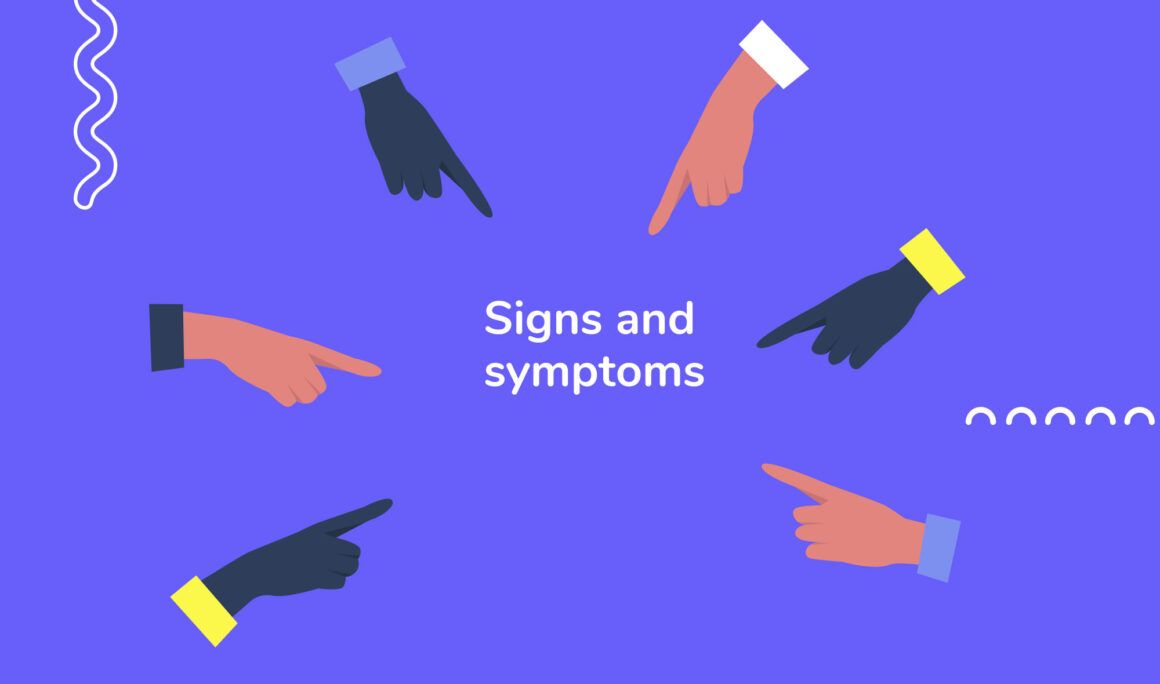
Anxiety is a normal and often healthy emotion. However, when it becomes chronic, it can interfere with our daily lives and productivity. Anxiety interfering with work can be especially challenging because it can affect our relationships with colleagues and our ability to perform tasks effectively.
In this blog post, we will explore strategies on how to manage and overcome work place anxiety. By understanding the causes of workplace anxiety and learning coping mechanisms, we can create a more positive and productive work environment for ourselves and those around us.
Join our Newsletter
Transform your career with our personal growth insights. Get one valuable tip right in your inbox every Saturday morning.
Calming anxiety at work

Anxiety is a feeling of worry, nervousness, or unease about something with an uncertain outcome. It is a normal and often healthy emotion, but it can become overwhelming or excessive. Anxiety is a feeling that is often accompanied by physical sensations, such as increased heart rate, muscle tension, and feelings of irritability or restlessness.
Anxiety disorders are a group of mental disorders characterized by feelings of anxiety and fear, where the symptoms can be severe enough to interfere with daily activities. Some of the most common types of anxiety disorders include generalized anxiety disorder, panic disorder, social anxiety disorder, and specific phobias.
Anxiety in the workplace is a common issue that affects many employees. According to a study by the American Psychiatric Association, more than a third of American co-workers experience chronic stress or a mental health condition, with anxiety being one of the most common.
Moreover, the COVID-19 pandemic has increased the prevalence of anxiety in the workplace. Remote working, job insecurity, and health concerns have made it even harder for people to manage their stress and anxiety levels in their life.
Tell me the cause of workplace anxiety.
There are many factors that can contribute to anxiety in the workplace, including job insecurity, a heavy workload, tight deadlines, and conflicts with colleagues or supervisors. Long-term exposure to these and other stress at work causing anxiety can lead an already anxious person to the development of an anxiety disorder.
Read on to learn more about the most common anxiety-provoking situations:
Stressful job demands
One way is through the creation of chronic stress. When an employee is repeatedly exposed to high levels of stress, it can cause overactivation of the body's stress response system, which can lead to feelings of anxiety. Chronic stress can also disrupt the balance of hormones and chemicals in the body, further exacerbating feelings of anxiety.
Another way stressful job demands contribute to workplace anxiety is by creating feelings of job insecurity. When an employee feels that their job is at risk, they may experience feelings of anxiety about their ability to support themselves and their families. This anxiety can be further compounded by internal factors, such as a physical or mental disability, or external factors like a lack of job opportunities or a weak job market.
Conflict with colleagues
Conflict with colleagues or supervisors can also contribute to workplace anxiety. When employees feel that they are not supported or valued by their colleagues or superiors, it can lead to feelings of isolation and anxiety. Job discrimination is unfortunately another source of conflict between co-workers that can quickly tank a once productive and stress-free work environment.
Lack of control or autonomy
Feeling micromanaged is also a common source of workplace anxiety. When an employee feels that they are being closely monitored or controlled by their supervisor, it can lead to feelings of resentment and mistrust. This can cause employees to feel stressed and anxious, as they may feel that their every move is being watched and judged.
A lack of autonomy in the workplace can also lead to feelings of isolation and disconnection, which can further contribute to anxiety. When employees feel that they have no input or control over the direction of their work, they may feel that they are not valued or respected by their colleagues or supervisors.
Furthermore, a lack of control or feeling micromanaged can impact the employee's self-esteem and confidence which in turn negatively affects their performance and productivity.
Unclear job expectations
Additionally, unclear job expectations can cause employees to feel overwhelmed and unable to meet the demands of their job. This can lead to feelings of inadequacy, which can contribute to anxiety.
Signs and symptoms

There are many signs and symptoms of workplace anxiety, but some of the most common include:
Physical symptoms: Anxiety can manifest itself in physical ways, such as headaches, muscle tension, fatigue, and not getting adequate sleep. These symptoms can make it difficult for employees to perform their job duties and can also lead to increased absenteeism.
Difficulty concentrating: Anxiety can make it difficult for employees to focus on their work and make decisions. This can lead to decreased productivity and quality of work, as well as difficulty completing tasks and meeting deadlines.
Emotional symptoms: When anxiety manifests itself emotionally, a person may feel nervous, fearful, and sometimes even angry. These emotions can make it difficult for employees to interact with colleagues and supervisors, which can lead to difficulties in building and maintaining positive relationships.
Behavioral symptoms: Anxiety can cause a change in behavior, such as avoidance of new tasks or situations, increased irritability, or lack of motivation.
It's important to note that anxiety is a normal emotion, and everyone experiences it from time to time. However, when anxiety begins to interfere with daily activities, it may be a sign of an anxiety disorder and professional help should be sought.
It's also important to note that the symptoms of anxiety may vary from person to person, and an employee may experience different symptoms at different times, It's essential to keep open communication with the employee and help them manage their anxiety and provide them with resources to manage their symptoms if needed.
Join our Newsletter
Transform your career with our personal growth insights. Get one valuable tip right in your inbox every Saturday morning.
Tips to manage anxiety at work
If you, your family member, or your co-workers are struggling to manage anxiety or anxious thoughts, you're not alone. Millions of Americans wrestle with work stress, negative thoughts, and intense anxiety in their daily life.
The good news is there are a number of things you can do to reduce anxiety and alleviate work-related stress with anti anxiety techniques at work.
Use Quick Coping Strategies
There are many quick coping strategies that can be used to manage stress in the workplace. Sometimes stepping away from the source of stress for a few minutes can be helpful. Take a short walk, go outside, or take short breaks throughout the day to clear your mind and relax.
If you are overwhelmed by a particular task like public speaking or a big presentation, break down that large task into smaller, manageable ones and prioritize them. Create to-do lists and set mini-deadlines based on realistic goals, and before you know it, you'll feel calmer and be able to accomplish more major projects.
Be mindful
Do you have trouble concentrating on tasks? Mindfulness is a great strategy to combat high-stress levels and help you manage anxiety at work solve. Practices such as deep breathing, yoga, and mindfulness meditation can help to reduce workplace stress and anxiety by allowing you to focus on the present moment and let go of worrying thoughts.
For those that are more familiar with the concept of mindfulness, more advanced methods, such as body scan mediation, progressive muscle relaxation, or guided imagery may also prove beneficial when they feel anxious.
Practice good health habits
Regular physical activity can help to reduce stress and anxiety. Even a short workout during your lunch break can help to clear your mind and boost your energy.
Additionally, certain nutrient-dense foods may be helpful in managing anxiety. Fish, particularly fatty fish like salmon, tuna, and sardines, are high in omega-3 fatty acids. These fatty acids are important for brain health and may help to reduce inflammation, which can exacerbate feelings of anxiety.
Berries such as blueberries, raspberries, and strawberries are high in antioxidants, which can help to reduce inflammation and protect the brain from stress. Whole grains such as quinoa, oats, and brown rice are rich in complex carbohydrates which can help to boost serotonin levels, which can improve mood and overall well-being.
Tell a Co-Worker
Talking to a colleague or friend about what's on your mind can be a great way to relieve stress and get some perspective. Sharing your thoughts and feelings with a colleague after one of the staff lunches or office parties can help you feel more understood and validated, which can provide a sense of social support. This can be especially important if you are feeling isolated or unsupported in the workplace.
Speaking with a coworker can also help you to brainstorm solutions to problems or challenges that you may be facing in the workplace. Having someone else to bounce ideas off of can help you to see things from a different perspective and can help you to develop more effective strategies for dealing with stress. And don't forget to thank them and be grateful for their support.
Press Play for Advice On Dealing With Anxiety
There are a variety of apps available that offer guided meditations and mindfulness exercises, such as Headspace and Calm, which can help to reduce feelings of anxiety and promote relaxation. Many of these apps offer a free version and a subscription version with more content and features.
Yoga and fitness videos are also available online and can help to reduce stress and anxiety by promoting relaxation and physical activity. You can find them on platforms like YouTube, or you can use apps like Down Dog or Yoga studio.
Some audiobooks and podcasts can help to provide information and support to help you manage stress and anxiety. These resources can help you learn more about different aspects of work stress and anxiety and how to cope with them in everyday life.
Some anxious people find that listening to therapeutic music can help to smooth them. There are several apps like Spotify or Apple Music that have playlists specifically designed for relaxation and meditation.
Talk to your manager
It's important to talk to your manager about work-related anxiety for several reasons. A supervisor can provide you with support and reasonable accommodation to help you manage your anxiety, such as flexible work arrangements or additional time off. Your manager may also be able to connect you with resources such as an employee assistance program or mental health services through accredited organizations such as the Anxiety and Depression Association.
By talking to your manager about your anxiety, you can work together to identify and address the underlying causes of your stress, such as excessive workload or unrealistic expectations. This can help to prevent your anxiety from recurring in the future.
Communicating with your manager about your concerns can also help to strengthen your relationship with them. Managers appreciate and encourage employees who are open, honest, and willing to work together to address problems.
It's important to note that these are quick coping strategies and they may not work for everyone or in all situations. Finding what works best for you may take time and experimentation, but the key is to have a toolbox of different strategies that you can use when you need them. Additionally, seeking professional support from a licensed clinical psychologist can also be very beneficial in managing stress and anxiety in the long run.
Recap
In summary, anxiety at work is a common issue that affects many employees and can have a negative impact on their performance, and mental and physical health. It's important to understand that there are many factors that can contribute to anxiety in the workplace and take steps to manage it.
If your new job is starting to feel overwhelming, the good news is that there are a variety of coping strategies and resources available to help employees manage their work anxiety and mental health, including exercise, taking a short break, mindfulness practices, nutrition, and therapy. Additionally, talking to a manager or coworker, and seeking professional help when needed can also offer support.
However, it's important to note that what works for one person may not work for another, so it may take some experimentation to find the right strategies that work best for your life. Remember, your well-being and mental health are essential, and it's crucial to take the necessary steps to protect them. It's important to be proactive in managing your anxiety and to seek the support you need to stay well and perform your best at work.

Read more about: Life Coaching
About Julian Lewis
Julian Lewis is a driven and accomplished professional with a passion for driving positive change in the business world. He is the co-founder and COO at Zella Life.
His own experience as a professional of color in a Fortune 500 company led him to discover the limitations for advancement that many professionals like himself face. Determined to reach his full potential, Julian became an established business coach and entrepreneur, committed to supporting others in their pursuit of personal and professional growth.
Today, Julian is a recognized corporate trainer, coach, and leader, known for his ability to leverage real-life experiences and evidence-based methodologies to affect positive change within individuals and organizations. As the leader of Zella Life's coaching division, he is dedicated to empowering individuals and businesses to achieve their full potential.